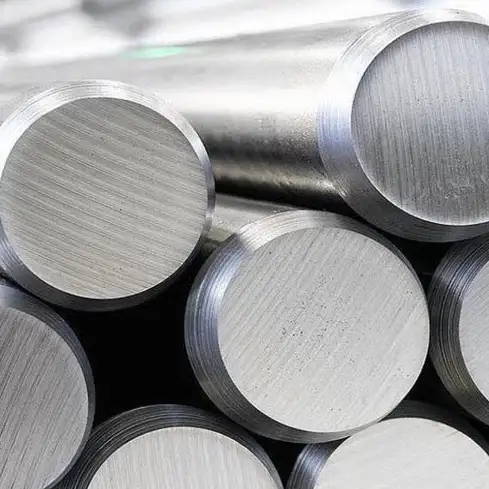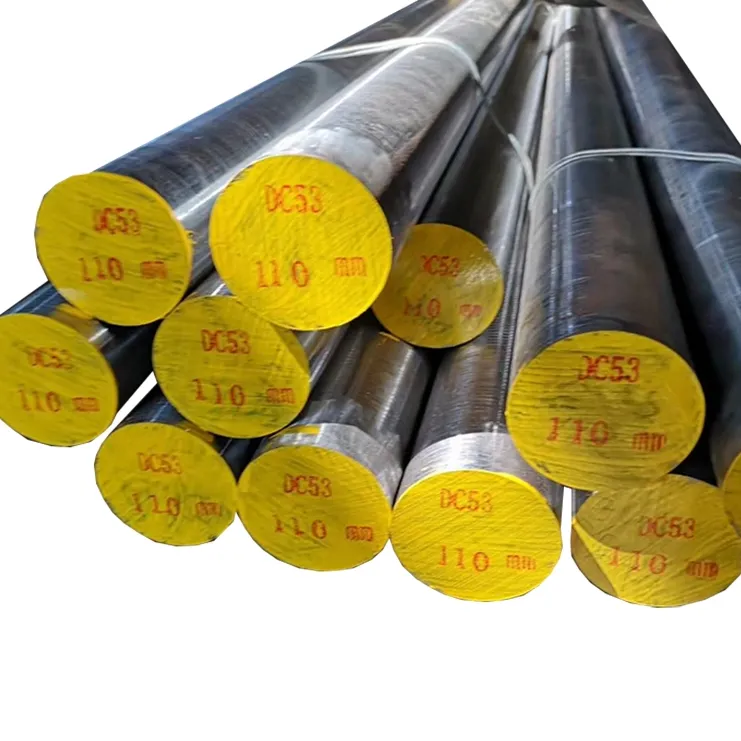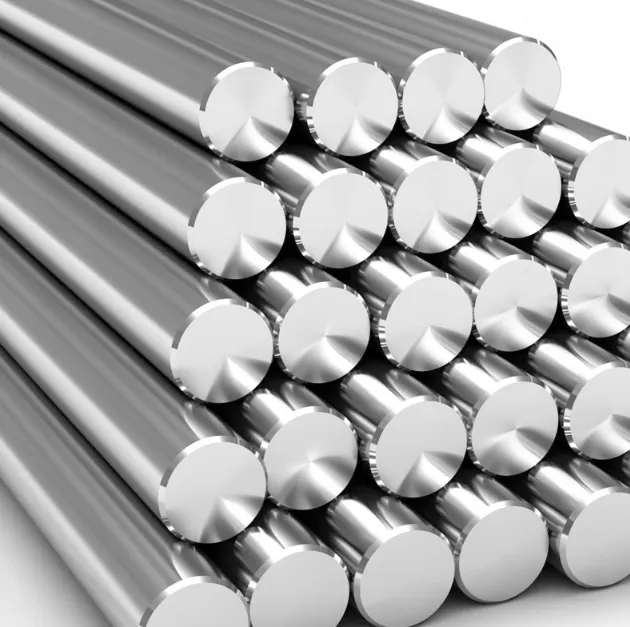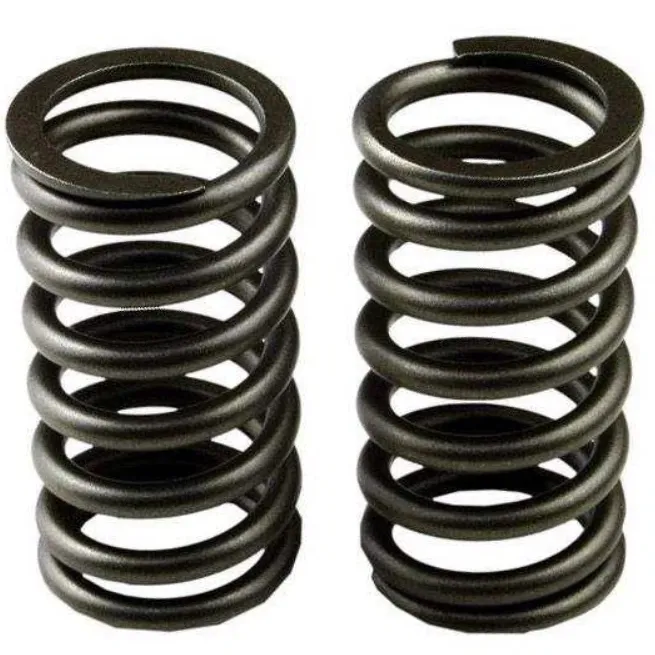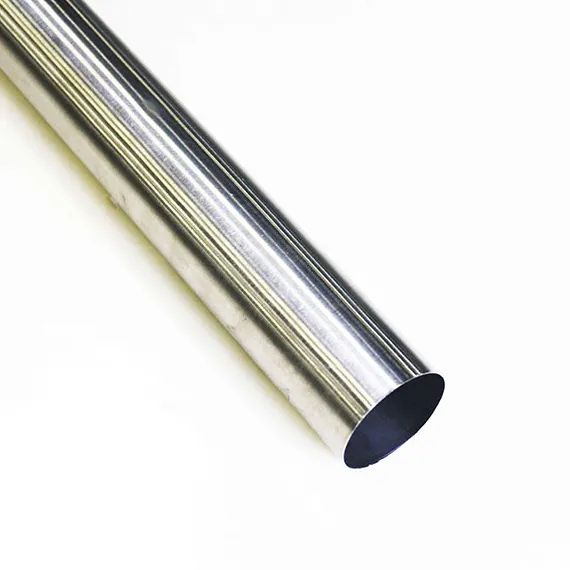Incoloy® Alloy 825 (UNS N08825, W.Nr. 2.4858) round bar is a titanium-stabilized, nickel-iron-chromium alloy engineered for demanding corrosion and sour-service environments. It combines high nickel content with molybdenum and copper to resist chloride-induced stress-corrosion cracking, pitting, crevice attack and reducing acids (sulfuric / phosphoric). For projects requiring durable bar stock for chemical, petrochemical, marine and down-hole oil & gas equipment, 825 round bar provides a cost-effective balance between performance and price compared with higher-nickel superalloys.
1. What is Incoloy 825?
Incoloy 825 is a nickel-iron-chromium based wrought alloy (UNS N08825) developed in the mid-20th century for applications where stainless steels were inadequate and more exotic nickel alloys were unnecessarily costly. The alloy’s chemistry (high Ni, significant Cr with Mo and Cu additions and Ti stabilization) gives it excellent resistance to both oxidizing and reducing acids, seawater, and chloride environments, while also offering good mechanical strength and weldability in the annealed condition. It is widely used in chemical processing, pollution control, heat exchangers, sour oil & gas service, and certain nuclear and power plant components.
2. Chemical composition (nominal ranges)
The table below summarizes the standard composition limits commonly referenced for UNS N08825 / Incoloy 825 (assessed from manufacturer datasheets and material standards). Individual mill certificates provide the exact analysis for each heat.
| Element | Typical range (wt%) — UNS N08825 (spec limits) |
|---|---|
| Nickel (Ni) | 38.0 – 46.0 |
| Chromium (Cr) | 19.5 – 23.5 |
| Iron (Fe) | Balance (≈22% min) |
| Molybdenum (Mo) | 2.5 – 3.5 |
| Copper (Cu) | 1.5 – 3.0 |
| Titanium (Ti) | 0.60 – 1.20 (stabilizer) |
| Manganese (Mn) | ≤ 1.00 |
| Silicon (Si) | ≤ 0.50 |
| Carbon (C) | ≤ 0.05 |
| Sulfur (S) | ≤ 0.03 |
| Aluminium (Al) | ≤ 0.20 |
Notes: These ranges represent common published limits (e.g., Special Metals, VDM, mill data). Purchase specifications (ASTM/ASME) should be cited on purchase orders to ensure exact acceptance limits and test requirements.
3. Material properties (representative, annealed condition)
Below are practical property values used for design and supplier selection. Always use certificates/test reports for final engineering numbers.
Physical properties (room temperature)
| Property | Typical value |
|---|---|
| Density | ≈ 8.14 g/cm³ (≈ 8,140 kg/m³). |
| Melting range | ≈ 1,370 – 1,400 °C. |
| Young’s modulus (E) | ≈ 195 – 200 GPa. |
| Thermal conductivity | ~10–11 W/m·K (room temp). |
| Electrical resistivity | ~1.12 ×10⁻⁶ Ω·m (approx.). |
Mechanical properties (annealed, typical)
| Property | Value (typical, annealed) |
|---|---|
| Tensile strength (UTS) | ~620 – 750 MPa (varies with product form). |
| Yield strength (0.2% proof) | ~275 – 360 MPa. |
| Elongation (A%) | ~40 – 50% (good ductility). |
| Hardness (HB) | ~160 – 220 HB (depends on processing). |
Design note: Alloy 825 retains ductility and corrosion resistance across a wide temperature range; however, exposure above ~540 °C may lead to precipitate formation and should be avoided for long-term service unless specifically qualified.
4. Standards, specifications and industry approvals
Buyers generally reference the following standards when ordering Incoloy 825 bar stock:
-
UNS N08825 (universal alloy designation).
-
Werkstoff / EN number 2.4858 (European designation).
-
ASTM B425 — Standard Specification for Ni-Fe-Cr-Mo-Cu Alloys (Rod & Bar) (current ASTM page). Use the ASTM designation on the PO for exact test/inspection requirements.
-
ASME SB-425 for material acceptance under the ASME Boiler & Pressure Vessel Code. ASME Code cases and approvals are commonly referenced for pressure equipment.
-
NACE MR0175 / ISO 15156 listing for sour-service qualification (commonly used in oil & gas to indicate suitability for H₂S environments). Alloy 825 is widely referenced in this context but final qualification should follow the standard’s clauses and material certificates.
Tip: When ordering for critical service (pressure vessel, sour service, nuclear), specify required certificates (EN 10204 3.1/3.2), traceability, heat number, and any required testing (chemical analysis, mechanical tests, PMI or NDT).
5. Incoloy 825 round bar specifications (typical commercial offerings)
Round bar is supplied in many diameters, lengths and finishes. Common supply options include hot-finished, cold-drawn, centreless ground, peeled & polished.
Typical sizes and tolerances (examples from stockists):
-
Diameters: 3 mm – 800 mm, with common stock ranges for 6–200 mm depending on mill and service. Standard lengths: 2,000 – 6,000 mm; cut-to-length service offered.
Common finishes:
-
Bright turned, rough turned, polished, ground (centreless), peeled.
Common product standards referenced on supplier sheets: ASTM B425 / ASME SB-425, AMS/SAE codes for wire forms, and EN/DIN equivalents.
6. Manufacturing and metal moulding processes (how round bars are produced)
Round bars of Incoloy 825 are manufactured by standard wrought-metal processes. Typical steps include:
-
Melting and refining: vacuum induction melting (VIM) or vacuum arc remelting (VAR) may be used for high-reliability orders; electric arc furnaces with refining are typical for commercial stocks. Chemistry control at this stage ensures UNS limits (Ni, Cr, Mo, Cu, Ti).
-
Primary forming: ingot casting or continuous casting, followed by hot forging/rolling to produce billets or blooms. Hot rolling reduces grain size and consolidates the ingot.
-
Billet to bar: billets are upset and pierced or hot-rolled to bar/rod cross sections; hot finishing produces oversized rounds which are subsequently cold drawn to final diameter with improved surface finish and tighter tolerances.
-
Heat treatment: annealing cycles (solution anneal followed by rapid cooling) are applied to remove work-hardening and optimize corrosion resistance; titanium stabilization mitigates sensitization. Manufacturer datasheets specify the precise temperature/time cycles.
-
Finishing: turning, centreless grinding, peeling, polishing or other surface treatments; straightening and final inspection.
-
Testing & QC: chemical analysis, tensile tests, hardness, PMI (positive material identification) if requested, dimensional inspection, and certificates of compliance (EN 10204 3.1/3.2).
Machining & welding: Incoloy 825 machines and welds well with standard nickel alloy practices; recommended filler metals include INCONEL®-type weld rods where required. Pre- and post-weld heat treatments are dictated by application and component size.
7. Equivalents and trade names
Common trade names and equivalents you may encounter:
-
Incoloy® 825: trade name (Special Metals).
-
Alloy 825 or Nickel Alloy 825 (generic).
-
UNS N08825 (universal numeric designation).
-
W.Nr. 2.4858 (Werkstoff / EN number).
-
Sanicro-825 / VDM Alloy 825 / Nicrofer 4241: manufacturer synonyms/trade names used in European mills.
Substitutes: For some applications Alloy 625 or Alloy 625-family may be considered when higher strength or elevated temperature performance is required, but cost and corrosion behaviour differ; choose substitute only after corrosion testing or specialist consultation.
8. Applications (where Incoloy 825 round bar is used)
-
Chemical processing: reactors, piping hangers, shafts, agitators, fasteners, and heat-exchanger components exposed to sulfuric and phosphoric acids.
-
Oil & gas: downhole tubulars, packers, valve stems and components for sour service where NACE/ISO guidance applies. Alloy 825 is listed/used in environments covered by NACE MR0175/ISO 15156 when properly qualified.
-
Marine and desalination: seawater piping, condensers, and components requiring resistance to chloride-induced local attack.
-
Pollution control & flue-gas systems: ductwork and hardware exposed to acid gases and condensates.
-
Nuclear and radioactive waste handling: select components where combined corrosion resistance and mechanical properties are needed.
9. Sizes and weight: how to calculate mass of round bar
Formula (metric):
Mass per metre (kg/m) = (π/4) × (D²) × ρ × 10⁻⁶
where D is diameter in mm, ρ is density in kg/m³ (~8,140 kg/m³ for Alloy 825).
Example conversions using density = 8,140 kg/m³ (8.14 g/cm³):
| Diameter (mm) | Area (mm²) | Mass (kg/m) ≈ |
|---|---|---|
| 6 mm | 28.27 | 0.230 |
| 12 mm | 113.10 | 0.920 |
| 20 mm | 314.16 | 2.556 |
| 25 mm | 490.87 | 3.995 |
| 50 mm | 1963.50 | 15.98 |
| 100 mm | 7853.98 | 63.80 |
Calculation note: mass/meter = 0.00000814 × area(mm²) × π/4. Use exact density from mill certificates for procurement and weight invoicing. Sources for density data: manufacturer datasheets (Special Metals, Zapp, Sandmeyer).
10.Incoloy 825 bar price
Important: Nickel-alloy prices fluctuate with raw material markets (nickel, molybdenum, copper), product form, certification, MOQ and supplier. The ranges below are market-observed mid-2025 snapshots aggregated from multiple supplier lists and market posts — they are indicative, not firm quotes. For firm pricing request a current PI from the mill or authorized stockist.
Representative FOB / factory price ranges (USD per kg), 2025 — round bar / general stock:
-
China (FOB factory, commercial bar stock): US$ 18 – 40 / kg (lower end for coarse bar/wire; higher for ground/precision bar & certified heat).
-
USA (domestic stock / small orders): US$ 35 – 75 / kg (reflects higher domestic production and certification costs).
-
Europe (EU mills / authorized stock): US$ 38 – 80 / kg (premium for European mill certification and shorter lead times).
Why ranges are wide: product form (hot-finished vs centreless ground), required certificates (3.1/3.2), small MOQs, export packaging, and shipping all change landed cost. For example, certified centreless ground bar with EN 10204-3.1 will sit at the high end; bulk hot-finished rounds without special certificates sit at the low end.
How MWAlloys positions: MWAlloys supplies competitive factory-direct pricing from China manufacturing partners. Our typical round bar offer for standard certified stock (ASTM/ASME) is at factory FOB levels (we state 100% factory price) with fast stock delivery for sizes we hold. For precise current pricing and minimum order quantities, request a formal price inquiry quoting diameter, length, certification and destination port—MWAlloys will return a firm pro-forma invoice. (Commercial claim — internal company offering.)
Caveat: always confirm prices in a formal quotation because alloy raw material costs change rapidly and exchange rates impact final USD prices.
11. Procurement, lead times and MWAlloys commercial offer
-
Stock items: many common diameters (6–50 mm) can be shipped from Chinese stock within 7–21 calendar days depending on final inspection and export paperwork. (Actual lead time varies by size, quantity and certification.)
-
Made-to-order or certified lots: 4–8 weeks typical for mill production plus inspection.
-
Certificates: MWAlloys provides EN 10204 3.1 / mill test certificate, chemical & mechanical reports, PMI on request, and packing list.
-
Quality claims: MWAlloys sources from qualified Chinese mills; we control chemistry and mechanical tests and offer traceability to heat number. We state 100% factory price advantage and fast stock delivery for stocked SKUs. (Promotional/commercial content by MWAlloys.)
Buyer checklist: specify ASTM/ASME standard on PO (e.g., ASTM B425, ASME SB-425), required certificate level (3.1/3.2), PMI or spectral analysis, surface finish, and non-standard tests if critical (e.g., H₂S testing, NACE qualification).
12. Inspection, testing and acceptance
Common inspection/test matrix for critical orders:
-
Chemical analysis (full elemental).
-
Mechanical tests: tensile, yield, elongation according to ASTM/ASME requirements.
-
Hardness test (where required).
-
Positive Material Identification (PMI) or spark/OES for trace checks (optional/when requested).
-
Non-destructive testing (UT/RT) for forgings or thick cross-sections (as requested).
-
Packaging and marking to buyer’s spec with heat number traceability, EN 10204 certificates.
13. Frequently asked questions (FAQs)
-
Is Incoloy 825 magnetic?
No — Incoloy 825 is essentially non-magnetic in the annealed condition (austenitic structure). -
Can Alloy 825 be welded?
Yes. It welds readily with appropriate filler metals; good practice is to follow supplier welding recommendations and to control heat input. -
Is 825 suitable for sour (H₂S) service?
Alloy 825 is commonly listed in guidance for sour environments, but final use must conform to NACE MR0175/ISO 15156 qualification and documented testing/experience. -
What are typical delivery lengths?
Standard commercial lengths are usually 2,000 mm to 6,000 mm; cut-to-length service is common. -
How do I calculate bar weight?
Use mass/m = (π/4) × (D²) × density. Use density ≈ 8.14 g/cm³ for Incoloy 825. -
How does 825 compare with Alloy 625?
625 generally has higher nickel and molybdenum for greater strength and corrosion resistance in some media; choice depends on required properties and cost. -
Are there EN equivalents?
Yes — W.Nr. 2.4858 and product standards in DIN/EN reference this alloy. -
What certificates are normal?
EN 10204 3.1 mill test certificates are common; 3.2 (third-party) when requested. -
Is Incoloy 825 used for pressure vessels?
Yes; it is permitted by ASME codes with appropriate material acceptance (ASME SB-425 and code cases where applicable) and temperature limits. -
Where can I get a sample or test bar?
Contact MWAlloys sales with diameter and required certificate — samples or small test lots are arranged subject to MOQ and testing needs. (Commercial offer.)
14. Design & engineering pointers
-
For corrosion-critical parts check localised corrosion indices (pitting, crevice) against process chemistry, temperature and chloride levels. Alloy 825 is robust but not universal.
-
For welded assemblies, control filler metal selection and heat input. Titanium stabilization reduces sensitization but welding parameters still matter.
-
For sour service, always follow NACE MR0175/ISO 15156 clauses and documented qualification paths rather than assumptions.
15. Authoritative references
- INCOLOY® alloy 825 — Special Metals Technical Bulletin (manufacturer datasheet)
- VDM® Alloy 825 — Data Sheet (European mill datasheet)
- ASTM B425 — Standard Specification for Nickel-Iron-Chromium-Molybdenum-Copper Alloys (rod & bar)
Closing commercial note (MWAlloys)
MWAlloys supplies Incoloy 825 round bar from qualified Chinese mills and global stockists. We offer factory-level pricing on stocked sizes with full traceability, EN/ASTM/ASME certificates on request, and fast delivery for standard bars. For a firm quotation please provide: required diameter(s), length or quantity (kg), finish (ground/turn/peel), certificate level (EN 10204 3.1/3.2) and destination port — MWAlloys will reply with a pro-forma invoice promptly.

